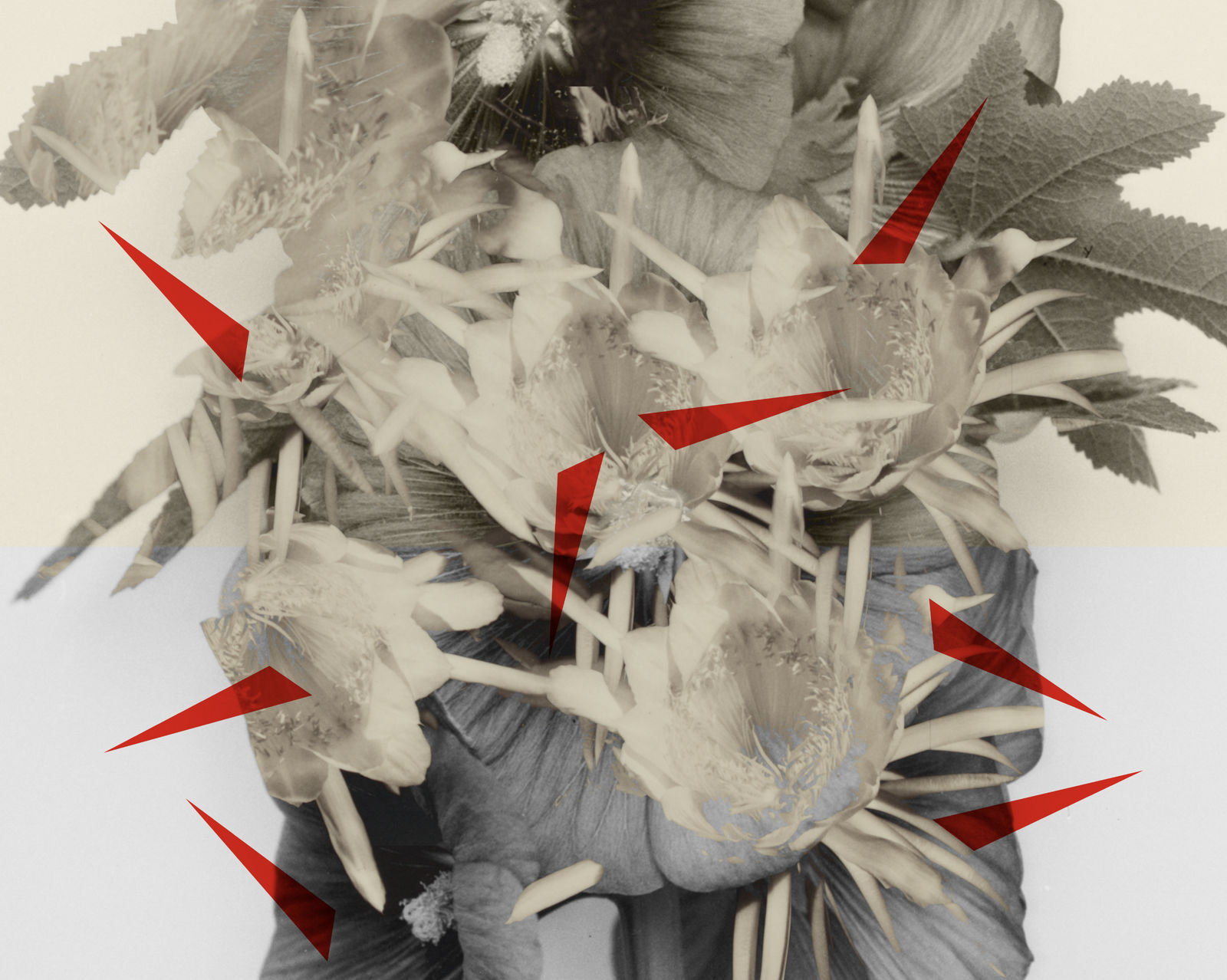Hazem Harb Palestinian-Italian, b. 1980
78 3/4 x 63 in
Exhibitions
Literature
Thorns (2022), combining 2-dimensional collages and installation. This latest series continues Harb’s visual investigation into the representation of the Palestinian experience, raising questions about the authoring and preservation of histories.
Architecture as a mode of structural violence and imperialism continues to preoccupy the artist. For this body of work he drew inspiration from the surrealistic film, Pink Floyd: The Wall (1982) directed by Alan Parker and Gerald Scarfe, specifically the scene where floral animations writhe around one another, reproduce and transcend into a new status.
Harb has produced several collaged works (UV fine art unique prints layered upon acrylic inside plexiglass) that unite archival imagery of extinct Palestinian plantlife with digital manipulation. While rose thorns in blood-red imposed over photographic prints of flowers point to violence, Harb’s energetic compositions recall his earlier expressionistic paintings. Harb regularly connects architecture, particularly Bauhaus concrete to regimes of suppression and colonisation. Here, however, his flowers growing out of the wall denote rebirth and growth, like the scene in The Wall suggests, life might blossom and transform in the bleakest situations.
Plantlife associated with Palestinian terrain has appeared in Harb’s practice at regular intervals. His compositions reveal icons such as the olive tree and the cactus referred to in Arabic as ‘sabr’; absorbed as a symbol of Palestinian resilience. Harb’s recent solo exhibition at Maraya Art Centre, revealed a vitrine enclosing rare pressed flowers that were once native to Palestine and are now largely extinct as well as 19th-century botanical illustrations. These illustrations while testifying to the existence of the flora that once flourished in Palestinian pastoral lands also bare the trace of colonial legacies. As colonisers began to charter the ‘new world’ in the 18th-century botanists, geologists, zoologists and others would document and produce an inventory of new territories before carving up natural resources. These rarified specimens are now exhibited at Art Dubai in dialogue with Harb’s newly produced works.
